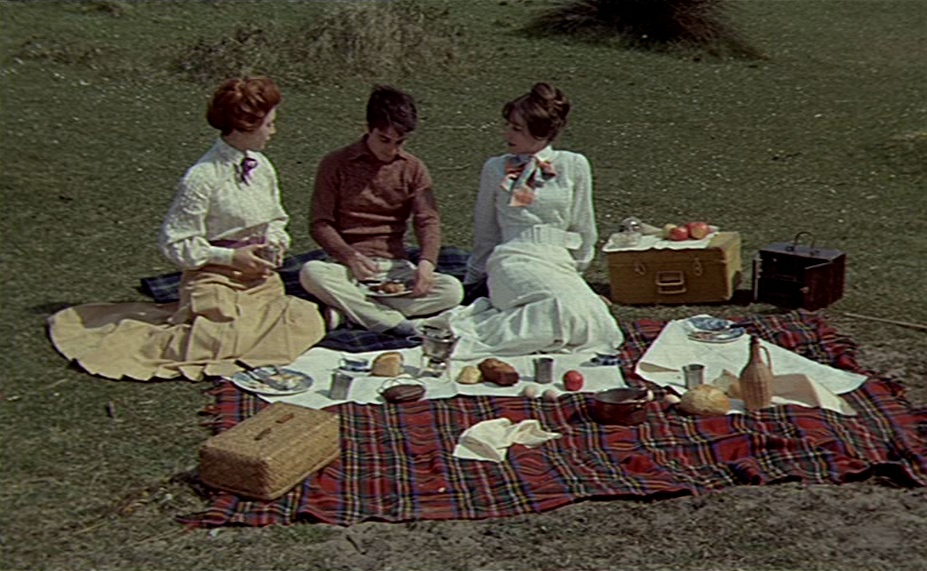Truffaut’s title Les deux Anglaises et le continent refers to two English girls, Muriel and Anne Brown, and their lover, Claude Roc, a Frenchman. It’s a confusing title until it is explained that the girls affectionately call Claude le continent. Even so, it’s a ditsy commentary on their relationship that is a jumbled ménage a trois in which no one is happy.
Among the brief, pleasant moments is a picnic. The trio sits on the grass beside a neatly set-out picnic and begins chattering, which triggers Claude’s memory of how he attempted suicide as a boy. This discussion undermines the sense of picnic pleasure, except for Claude, who seems to be enjoying his performance. (Truffaut likes putting characters in unfortunate or degrading situations to create friction.)
“When I was fifteen,” Claude says, “I decided to die.” Locking himself in his bedroom, he lit a fire under his bed and slit his wrists. He says that he was saved by the smoke wafting from under his locked door.
Unperturbed by this tale of woe, Anne abruptly wonders why Claude and Muriel have not courted more intensely. The shift indicates that she has not listened to Claude’s story or doesn’t care. (Perhaps both.)
Lined up like dots waiting to be connected, the food is picnic fodder.
*Les deux Anglaises suited Truffaut’s state of mind. While working on this film, he was depressed because of his broken love affair with Catherine Deneuve. It’s hard to imagine a more incoherent love story. Pauline Kael thought it was “a bewilderingly sad movie.”
See Francois Truffaut. Les deux Anglaises et le continent (1971). Screenplay by Francois Truffaut and Jean Gruault based on Pierre-Henri Roche’s semi-autobiographical novel (1956); Bert Cardullo. World Directors in Dialogue: Conversations on Cinema. Lanham, MD., The Scarecrow Press, 2011

